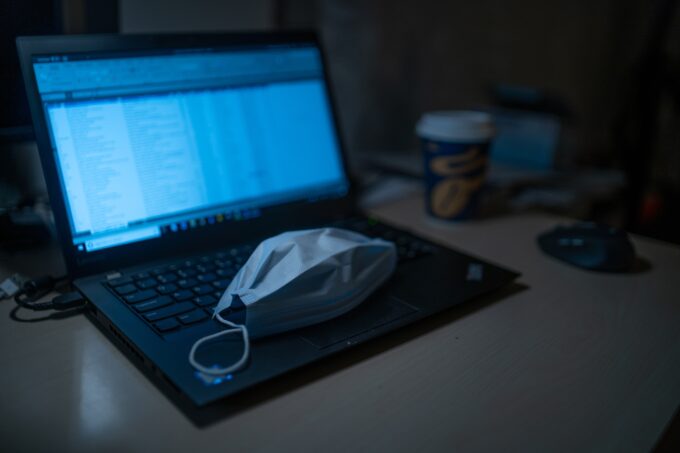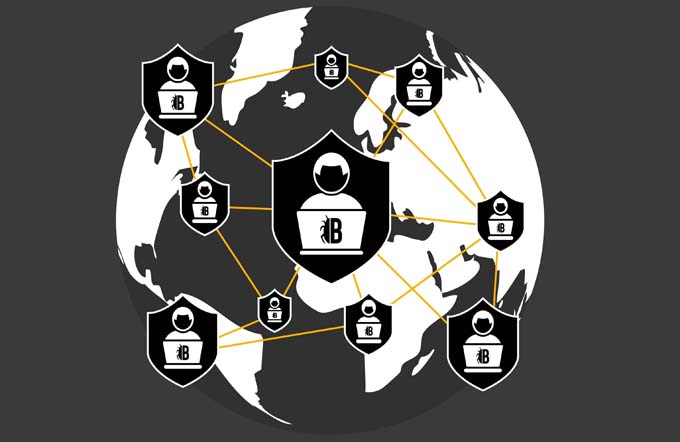Legal handling of the possible consequences of the Corona virus (Covid-19)
With the rapid spread of the Corona virus, questions arise in various respects for everyday business in the company. Of particular importance are employment law, general contract law, daily sickness benefits insurance and occupational health aspects. A checklist from the Swiss Confederation of Labour (sgv).

1. summary
With the rapid spread of the Corona virus, questions arise in various respects for everyday business in the company. Of particular importance are employment law, general contract law, daily sickness benefits insurance and occupational health aspects.
- The best prophylaxis is personal hygiene measures, i.e. washing hands thoroughly, staying at home if you have a fever or a cough and sneezing into a handkerchief or the crook of your arm.
- You will find comprehensive answers to questions relating to the management of day-to-day business in this leaflet or under the link of the SECO to the topic.
2. legal issues
2.1 Labour law
Due to the Duty of care (OR 328 para. 2), the employer must take reasonable measures to protect the health of employees. This also includes self-quarantine if an employee has returned from a risk area (China, Iran, Northern Italy, South Korea). Based on the Right of instruction (OR 321d), the employer may order teleworking or home office. In this case, employees must comply with such an instruction. It is also possible to order that overtime or extra hours be compensated or that holidays (OR 359c) be taken, whereby in the case of compulsory holidays the interests of the employee(s) must be taken into account by the employer. In such cases, the full salary is due (OR 324 para. 1). In the case of compensation for overtime and extra hours, the employee's consent is required. Working hours are generally in accordance with the law. In principle, the employer can also impose a holiday ban, as it can determine the timing of the holidays. The employee must be consulted and his or her wishes must be taken into account. However, the postponement of already agreed holidays is only justified for serious reasons. Any compulsion to take unpaid leave is null and void. Company holidays are also conceivable, although these must be announced in good time (at least 14 days) in advance.
Duty to continue to pay wagesIf an employee falls ill, the company is obliged to continue paying wages (OR 324 para. 1). If the company has Daily sickness benefits insurance (KTG), this takes effect after expiry of the contractually agreed waiting period (usually 30, 60 or 90 days). If the employer does not have any daily sickness benefits insurance, the duration of the continued payment of salary is based on the existing scales (Berne, Basel, Zurich scale). If the employer waives the employee's right to work, the agreed salary must continue to be paid. An ordered self-quarantine cannot be settled via the KTG if there is no case of illness. The same applies if the competent authority orders a quarantine measure against an employee in accordance with Art. 35 Para. 1 lit. a EpiG. If the employee wishes to be absent from work of his or her own accord, there is no entitlement to a salary for the period of absence.
Also in the following cases, the Wage owed (during limited period, OR 324a):
- The employee falls ill during the holidays and is therefore unable to travel.
- The employee falls ill with the coronavirus during the holidays and is therefore unable to travel.
- The operation has to be stopped due to delivery bottlenecks of the supplier.
- The employee cares for a child suffering from coronavirus at home (Art. 36 ArG).
- The employer sends the employee home or closes the company as a precaution.
- The employer refuses to take protective measures and to apply hygiene rules.
- Schools and kindergartens are closed by the authorities. The employee must look after the children (ZGB 276).
- The company is closed by order of the authorities. However, the employee may be obliged to make up for the "missed" working hours on the basis of his fiduciary duty.
In the following cases the wages not due:
- The employee cannot return from the holiday because the authority responsible at the holiday destination does not allow the employee to leave or closes the border (force majeure).
- The employee is a fearful person and refuses to work out of caution because he or she might be infected (refusal to work).
- The employee cannot come to work because public transport is reduced or discontinued (take other means of transport). However, if the work can be done from home (teleworking), the salary is due.
- The employee does not send his or her child to the crèche out of fear, but looks after it at home and therefore has to stay away from work.
- The (entire) place of residence of the employee is quarantined.
Short-time workSECO has instructed the cantons to examine applications for short-time working with regard to Covid-19. If the competent authority orders the closure of a company or prohibits access to certain buildings or areas, it must be examined whether short-time working compensation can be claimed. Short-time work must also be examined by those companies which, due to the nature of their business activity, cannot order teleworking. The following cases should also be examined:
- employees cannot keep to their working hours because transport restrictions make access to the place of work difficult;
- necessary raw materials/operating supplies are not available due to import/export ban;
- Delivery problems with raw materials and supplies;
- Interaction of various factors due to the pandemic leading to a cessation of operations;
- Reduction in working hours by official order;
Short-time working compensation cannot be claimed if employees have to look after their children at home due to circumstances (e.g. closed day nurseries).
2.2 General contract law
The general contract law according to OR applies. This also applies to contract law and the obligation of performance as well as the dunning process, as long as there is no legal deadlock.
3. pandemic case and entrepreneurial risk
In the event that the Federal Office of Public Health classifies the situation as special or exceptional (Articles 6 and 7 EpiG) in accordance with the EpiG, employers are required to take further protective measures and draw up a pandemic plan. The pandemic plan is available on the FOPH website and should be noted by each company in good time and implemented as necessary: Link Pandemic Plan Federal Office of Public Health FOPH. Further information: www.pandemia.ch.
Aim of a Pandemic Plan is to ensure the protection of employees while at the same time being able to safeguard the company's operations. A pandemic plan includes, for example, training in hygiene measures, the use of protective clothing or protective material where necessary, measures to increase hygiene (disinfection of workplaces, distribution of disinfectants), measures to organise workplaces (e.g. video conferencing and virtualisation of meetings, instead of travel, etc.). Workplace pandemic plans are sector-specific and must be developed and implemented in a correspondingly sector-specific manner. Pandemic plans must also be prepared by non-profit organizations, since the obligations under labor law as an employer and the organizational considerations for occupational preparedness apply regardless of whether the organization is for-profit or otherwise. If there are branches abroad, they should prepare their pandemic plans on their own and in accordance with the law applicable at the location.
The employer is obliged to protect his employees during the work properly protect (ArGV3). This may well involve the company providing masks and similar protective materials. It is recommended that the recommendations of the FOPH be followed (duty of care). In return, the employee is obliged to provide information about any illnesses (duty of loyalty). A Compulsory vaccination cannot be decreed. The placing of an establishment under the Quarantine or the closure of the establishment is the responsibility of the cantonal medical officer. The entrepreneurial risks remains in place. There is no compensation for loss of sales and income. Liability issues in pandemic cases are governed by cantonal law (Art. 71 EpiG). The canton of Zurich, for example, has no corresponding liability obligation. However, there is the Insolvency compensationwhich can cover lost wages in the event of the employer's insolvency.
Comprehensive answers to further questions at: https://www.seco.admin.ch/seco/de/home/Arbeit/Arbeitsbedingungen/gesundheitsschutz-am-arbeitsplatz/Pandemie.html.
4. practical health care in the company
Inside and outside the company, the following rules of conduct are indicated:
- wash hands regularly with soap & water;
- Disinfect hands correctly and regularly, especially after coughing, sneezing or blowing your nose;
- always use a paper handkerchief or cough and sneeze into the crook of your arm;
- Use disposable handkerchiefs and dispose of them in closed waste bins after use.
- Keep hands away from face; do not touch mouth, nose, or eyes;
- Avoid shaking hands; keep one meter distance to other persons;
- If you have flu symptoms and feel sick, be sure to stay home.
- Only after telephone registration in doctor's practice or emergency ward
5. disclaimer
This fact sheet is for information purposes only and is not a complete checklist nor can it replace legal advice. The Swiss Trade Association sgv disclaims any liability that may arise in connection with the application or omission of any action by this fact sheet. In addition, we recommend that you obtain information from the relevant federal web pages:
- www.bag.admin.ch
- www.seco.admin.ch
- in particular: SECO Health protection at the workplace: Pandemic plan - Manual for operational preparation
- You will find comprehensive answers to questions relating to the management of day-to-day business in this leaflet or under the link of the SECO to the topic.









